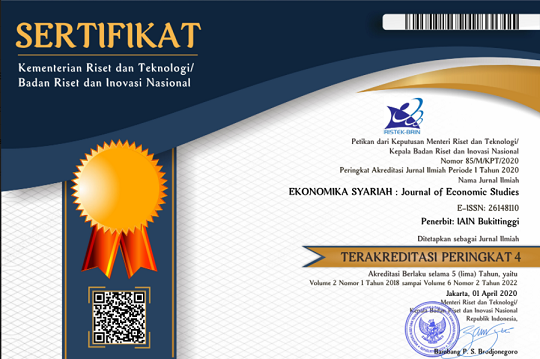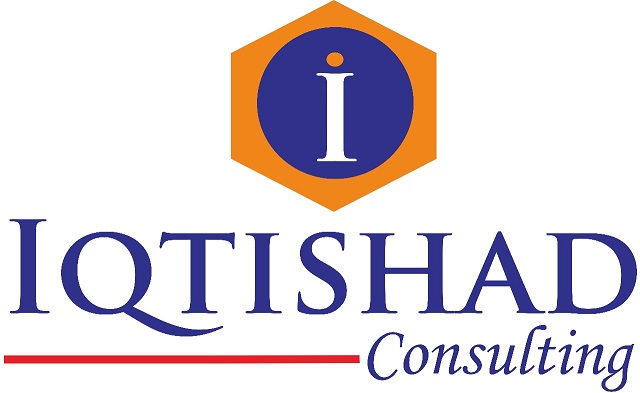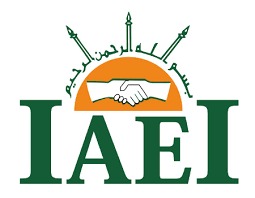MANAJEMEN LABA RIIL DAN RELEVANSI NILAI PERUSAHAAN SETELAH KONVERGENSI IFRS DI INDONESIA
DOI:
https://doi.org/10.30983/es.v2i2.688Abstract
Penelitian ini menguji pengaruh manajemen laba riil terhadap relevansi nilai. Penelitian ini diperluas dengan dengan menambahkan variabel kepemilikan keluarga sebagai pemoderasi hubungan antara manajemen laba riil dan relevansi nilai. Hal ini disebabkan karena terdapat dua teori yang dikemukakan Wang (2006) yaitu entrenchment effect and alignment effect. Sampel pada penelitian ini ialah perusahaan non-keuangan yang terdaftar di Bursa Efek Indonesia mulai dari tahun 2012 s.d 2015. Pengujian hipotesis dilakukan menggunakan regresi linier berganda. Hasil pengujian menunjukkan manajemen laba riil berpengaruh negatif terhadap relevansi atas informasi akuntansi perusahaan. Pada pengujian variabel moderasi diperoleh hasil bahwa kepemilikan keluarga dalam perusahaan terbukti dapat memperlemah hubungan antara manajemen laba riil dengan relevansi atas informasi akuntansi yang dipublikasi perusahaan.
References
Achleitner, A. K., Gunter, N., Kaserer, C., and Siciliano, G. 2014. Real Earnings Management and Accrual Based Earnings Management in Family Firms. European Accounting Review. Vol. 23: 431–461.
Andayani, W. 2014. Pengaruh Kepemilikan Keluarga Terhadap Pengelolaan Laba dan Kinerja Perusahaan: Ditinjau Dari Teori Stewardship. Disertasi Fakultas Ekonomika dan Doctor Universitas Gadjah Mada.
Anderson, R.C. and Reeb, D. M. 2003. Founding-Family Ownership and Firm Performance: Evidence from the S&P 500. The Journal of Finance. Vol. 58: 1301-1328.
Badertscher, B. A. 2011. Overvaluation and Choice of Alternative Earnings Management Mechanisms. The Accounting Review. Vol. 86: 1491–1518.
Barth, M. E., Bearver, W. H., and Landsman, W. R. 2001. The Relevance of the Value Relevance Literature for Financial Accounting Standard Setting: Another View. Journal of Accounting and Economics. Vol 31: 77-104.
Barth, M. E., Landsman, W. R., and Lang, M. H. 2008. International Accounting Standards and Accounting Quality. Journal of Accounting Research. Vol. 46: 467-498.
Baum, C.F. 2001. Residual Diagnostics for Cross-Section Time Series Regression Models. The Stata Journal. Vol. 1: 101–104.
Brochet , F., Jagolinzer, A. D., and Riedl, E. J. 2013. Mandatory IFRS Adoption and Financial Statement Comparability. Contemporary Accounting Research. Vol. 30: 1373-1400.
Bryce, M., Ali, M. J., and Mather, P. R. 2015. Accounting Quality in the Pre or Post IFRS Adoption Periods and the Impact on Audit Committee. Pacific-Basin Finance Journal. Vol. 35: 163-181.
Callao, S. and Jarne, J. I. 2010. Have IFRS Affected Earnings Management in the European Union. Accounting in Europe. Vol. 7: 159–189.
Carney, R. W. and Child, T. B. 2013. Changes to the Ownership and Control of East Asian Corporation Between 1996 and 2008: The Primacy of Politics. Journal of Financial Economics. Vol. 107: 494-513.
Cascino, S., Pugliese, A., Mussolino, D., and Sansone, C. 2010. The Influence of Family Ownership on the Quality of Accounting Information. Family Business Review. Vol. 23: 246– 265
Chau, G. and Gray, S. J. 2010. Family Ownership, Board Independence and Voluntary Disclosure: Evidence from Hong Kong. Journal of International Accounting, Auditing and Taxation. Vol. 19: 93-109.
Chen, S., Chen, X., and Chengf, Q. 2008. Do Family Firms Provide More or Less Voluntary Disclosure. Journal of Accounting Research. Vol. 46: 499-536.
Chi, C. W., Hung, K., Cheng, H. W., and Lieu, P. T. 2015. Family Firms and Earnings Management in Taiwan: Influence of Corporate Governance. International Review of Economics and Finance. Vol. 36: 88-98.
Chiang, S., Kleinman, G., and Lee, P. Do Non-Staggered Board Elections Matter to Earnings Quality and The Value Relevance of Earnings and Book Value. Review of Accounting and Finance. Vol 16: 46-66.
Chua, Y. L., Cheong, C. S., and Gould, G. 2012. The Impact of Mandatory IFRS Adoption on Accounting Quality: Evidence from Australia. Journal of International Accounting Research. Vol. 11: 119-146.
Chu, W. 2011. Family Ownership and Firm Performance: Influence of Family Management, Family Control, and Firm Size. Asia Pacific Journal Management Vol 28:833–851.
Claessens, S., Djankov, S., and Lang, H.P. Larry. 2000. The Separation of Ownership and Control in East Asian Corporation. Journal of Financial Economics. Vol. 58: 81-112.
Clarkson, P., Hanna, J. D., Richardson, G. D., and Thompson, R. 2011. The Impact of IFRS Adoption on the Value Relevance of Book Value and Earnings. Journal of Contemporary Accounting and Economics. Vol. 7: 1-17.
Cohen, D. A., Dey, A., and Lys, T. Z. 2008. Real and Accrual-Based Earnings Management in the Pre and Post-Sarbanes-Oxley Periods. The Accounting Review. Vol. 83: 757–787.
Cohen, D. A. and Zarowin, P. 2010. Accrual-Based and Real Earnings Management Activities Around Seasoned Equity Offerings. Journal Accounting Economics. Vol. 50:2–19
Cupertino, C. M., Martinez, A. L., and Newton, C. Jr. 2015. Earning Manipualtions by Real Activities Management and Investors’ Perception. Research in International Business and Finance. Vol 34: 309-323.
Dechow, P. M., Sloan, R. G., and Sweeney, A P. 1995. Detecting Earnings Management. The Accounting Review. Vol. 70: 193-225.
Dichev, I., and Skinner, D. 2002. Large-Sample Evidence on the Debt Covenant Hypothesis. Journal of Accounting Research. Vol. 40: 1091–1123.
Dimitropoulos, P. E., Asteriou, D., Kousenidis, D. and Leventis, S. 2013. The Impact of IFRS on Accounting Quality: Evidence from Greece. Advances in Accounting, Incorporating Advances in International Accounting. Vol. 29: 108–123.
Doukakis, C. L. 2014. The Effect of Mandatory IFRS Adoption on Real and Accrual Based Earnings Management Activities. Journal Accounting Public Policy. Vol. 33: 551- 572.
Drukker, D.M. 2003. Testing for Serial Correlation in Linear Panel Data Models. The Stata Journal. Vol. 3:168–77.
Elias, N. 2012. The Impact of Mandatory IFRS Adoption on Accounting Quality: Evidence from Australia. Journal of International Accounting Research Vol. 11: 147–154.
Ewert, R. and Wagenhofer, A. 2005. Economic Effects of Tightening Accounting Standards to Restrict Earnings Management. The Accounting Review. Vol. 80: 1101-1124
Fan, J and Wong, T. J. 2002. Corporate Ownership Structure and the Informativeness of Accounting Earnings in East Asia. Journal of Accounting and Economics. Vol. 33: 401–425.
Feliana, Y. K. 2007. Pengaruh Struktur Kepemilikan Perusahaan dan Transaksi Dengan Pihak-Pihak Yang Memiliki Hubungan Istimewa Terhadap Daya Informasi Akuntansi. Simposium Nasional Akuntansi X.
Francis, B., Hasan, I., and Lingxiang, L. 2016. Abnormal Real Operations, Real Earnings Management and Subsequent Crashes in Stock Prices. Review Quantitative Finance Accounting. Vol. 46: 217-260.
Gilson, R. J. 2006. Controlling Shareholders and Corporate Governance: Complicating the Comparative Taxonomy. Harvard Law Review. Vol. 119: 1641-1679.
Gonzales, J. S. and Meca, E. G. 2014. Does Corporate Governance Influence Earnings Management in Latin American Markets. Journal of Business Ethics. Vol. 121: 419-440.
Graham, J. R., Harvey, C.R., and Rajgopal, S. 2005. The Economic Implications of Corporate Financial Reporting. Journal of Accounting and Economics. Vol. 40: 3–73.
Guay, W., Kothari, S.P., and Watts, R.L. 1996. A Market Based Evaluation of Discretionary Accrual Models. Journal of Accounting Research.Vol. 34: 83–105.
Gujarati, D.N. and Porter, D.C. 2009. Basic Econometrics. Fifth Edition. New York: McGraw Hill Irwin: 591-613.
Gunny, K. 2010. The Relation Between Earnings Management Using Real Activities Manipulation and Future Performance: Evidence from Meeting Earnings Benchmarks. Contemporary Accounting Research. Vol. 27: 855–888.
Guo, J., Huang, P., Zhang, Y., and Nan Z. 2015. Foreign Ownership and Real Earnings Management: Evidence from Japan. Journal of International Accounting Research. Vol. 14: 185-213.
Habib, A. 2004. Impact of Earning Management on Value Relevance of Accounting Information: Empirical Evidence from Japan. Managerial Finance. Vol. 30: 1-15.
Healy, P. M. and Wahlen, J. M. 1999. A Review of the Earnings Management Literature and Its Implication for Standard Setting. Accounting Horizon. Vol. 13: 365-383.
Hoechle, D. 2007. Robust Standard Errors for Panel Regressions with Cross Sectional Dependence. The Stata Journal. Vol. 7: 281–312.
Ismail, W. A. W., Kamarudin, K. A., Zijl, T. V. and Dunstan, Keitha. 2013. Earnings Quality and the Adoption of IFRS Based Accounting Standard. Asian Review of Accounting. Vol. 21: 53-72.
Jensen, M. C. and Meckling, W.H. 1976. Theory of the Firm: Managerial Behavior, Agency Costs and Ownership Structure. Journal of financial Economics. Vol. 3: 305-360.
Kargin, S. 2013. The Impact of IFRS on the Value Relevance of Accounting Information: Evidence From Turkish Firms. International Journal of Economics and Finance. Vol. 5: 71-80.
La Porta, R., Lopez-De-Silanes, F., Shleifer, A. and Vishny, R.W. 2000. Agency Problems and Dividend Policies Around the World. The Journal of Finance. Vol. 55: 1-33.
Marquardt, C. A. and Christine, I. Wiedman. 2004. The Effect of Earnings Management on the Value Relevance of Accounting Information. Journal of Business Finance & Accounting. Vol. 31: 297-332.
Mulyani, E., Singh, H. and Mishra, S. 2016. Dividends, Leverage, and Family Ownership in the Emerging Indonesia Market. Journal of International Financial, Market, Institution, and Money. Vol. -: 1-14.
Muttakin, M. B., Monem , R. M., Khan, A. and Subramaniam, N. 2015. Family Firms, Firm Performance and Political Connections: Evidence from Bangladesh. Journal of Contemporary Accounting and Economics. Vol 11: 215-230.
O’Boyle, E. H. Jr., Rutherford, M. W. and Pollack, J. M. 2010. Examining the Relation Between Ethical Focus and Financial Performance in Family Firms: an Exploratory Study. Family Business Review. Vol 23: 310-326.
Ohlson, J. 1995. Earnings, Book Values and Devidends in Equity Valuation: an Empirical Perspective. Contemporary Accounting Research. Vol 18: 107-201.
Razzaque, R. M., Ali, M. J., and Mather, P. R. 2015. Real Earning Management in Family Firm: Evidence from an Emerging Economy. Pacific-Basin Finance Journal.Vol -: 6-14
Roychowdhury, S. 2006. Earnings Management Through Real Activities Manipulation. Journal of Accounting and Economics. Vol 42: 335–370.
Schipper, K. 1989. Commnetary on Earning Management. Accounting Horizon. Vol. 3: 91-102.
Shan, Y. G. 2015. Value Relevance, Earning Management and Corporate Governance in China. Emerging Market Review. Vol. 23: 186-207.
Siregar, S. V. and Utama, S. 2008. Type of Earning Management and the Effect of Ownership Structure, Firm Size, and Corporate Governance Practice: Evidence from Indonesia. The International Journal of Accounting. Vol. 43: 1-27.
Tendeloo, B. V. and Vanstraelen, Ann. 2005. Earnings Management Under German GAAP Versus IFRS. European Accounting Review. Vol. 14: 155-180.
Tsipouridou, M. and Spathis, C. 2012. Earnings Management and the Role of Auditors in an Unusual IFRS Context: the Case of Greece. Journal of International Accounting, Auditing and Taxation. Vol. 21: 62-78.
Villalonga, B and Amit, R. 2006. How Do Family Ownership, Control and Management Affect Firm Value. Journal of Financial Economics. Vol. 80: 385-417.
Wang, D. 2006. Founding Family Ownership and Earning Quality. Journal of Accounting Research. Vol. 44: 619-656.
Watt, R. L. and Zimmerman, J. L. 1990. Positive Accounting Theory: A Ten Year Perspective. The Accounting Review. Vol. 65: 131-156.
Wu, P., Gao, L. and Gu, T. 2015. Business Strategy, Market Competition and Earnings Management Evidence from China. Chinese Management Studies.Vol. 9: 401-424.
Yip, R. W. Y. and Young, D. 2012. Does Mandatory IFRS Adoption Improve Information Comparability. The Accounting Review. Vol. 87: 1767-1789.
Zang A. 2012. Evidence on the Trade Off Between Real Activities Manipulation and Accrual Based Earning Management. Accounting Review. Vol 87: 675–703.
Zeghal, D., Chtourou, S. M., and Fourati, Y. M. 2012. The Effect of Mandatory Adoption of IFRS on Earnings Quality: Evidence from the European Union. Journal of International Accounting Research. Vol. 11: 1–25.
Downloads
Additional Files
Submitted
Accepted
Published
Issue
Section
License
Authors who publish with this journal agree to the following terms:
- Authors retain copyright and grant the journal right of first publication with the work simultaneously licensed under a Creative Commons Attribution-ShareAlike 4.0 International License that allows others to share the work with an acknowledgment of the work's authorship and initial publication in this journal.
- Authors are able to enter into separate, additional contractual arrangements for the non-exclusive distribution of the journal's published version of the work (e.g., post it to an institutional repository or publish it in a book), with an acknowledgment of its initial publication in this journal.
- Authors are permitted and encouraged to post their work online (e.g., in institutional repositories or on their website) prior to and during the submission process, as it can lead to productive exchanges, as well as earlier and greater citation of published work (See The Effect of Open Access).













